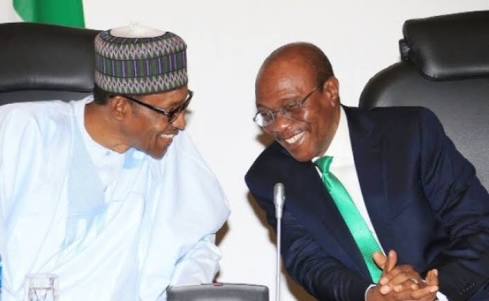There are no products in your shopping cart.
| 0 Items | £0.00 |


NIGERIA has enjoyed a slight growth in her foreign reserves which rise to $34.85bn as of April 1 from the $34.41bn which they were on March 11 as a result of a combination of the Central Bank of Nigeria's (CBN) naira-for-dollar policy and rising oil prices.
In December last year, the CBN unveiled a new financial policy that grants unfettered access to foreign exchange sent from the diaspora and other money transfer remittances that come into the country through the likes of Western Union and MoneyGram. Aimed at ensuring dollar inflows pass through commercial banks, instead of unofficial channels, the policy has resulted in a $404m boost in foreign reserves.
Also helping reserves accretion is the continued rise in benchmark Brent crude oil price, which stood at $63.29 per barrel as at April 8, representing about $23.29 above the $40 per barrel benchmark price outlined in the 2021 budget. According to the CBN governor, Godwin Emefiele, the naira for dollar policy, gives a N5 rebate for every $1 sent by Nigerians in diaspora to the country, which is paid directly to the account of the beneficiaries.
In December, the CBN had promised that the new policy would provide Nigerians in the diaspora with cheaper and more convenient ways of sending remittances back home. Defending the dollar policy, Mr Emefiele said the move was also to increase the transparency of remittance inflows and reduce the rent-seeking activities of cowboys.
He expressed optimism that the new policy measure will encourage banks and financial institutions to develop products and investments vehicles geared towards attracting investments from Nigerian diasporans. Mr Emefiele emphasised that the new measure would help to make the process of sending remittance through formal bank channels cheaper and more convenient for Nigerians in the diaspora.
Fitch Ratings, a global rating agency predicted that Nigeria’s external foreign reserves would rise to $42bn by the end of the year. In a report titled Depreciatory Pressures on Key Sub-Saharan African Currencies to Lessen, Fitch Ratings had hinged the forecast on its expectation that Brent crude would average $53 per barrel, compared with the $43.1 per barrel recorded in 2020.
Moreover, the agency anticipated that the CBN would allow the official naira exchange rate to depreciate further over the course of 2021, notwithstanding improved terms of trade and foreign exchange reserves. According to Fitch, higher oil prices should mitigate some of the effects of the depreciation of the naira.
A Fitch spokesman said: “Given rising oil prices in 2021, we expect forex reserves to rise to an average of around $42bn in 2021, representing around eight months of import cover, compared with $36bn in 2020. However, this will not negate the impact of persistent depreciatory pressures on the naira, notably as a result of rising dollar demand driven by the domestic economic recovery.”